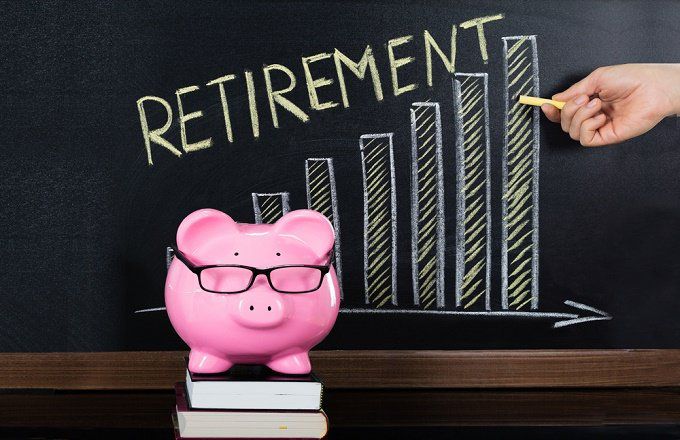
What’s your ideal retirement age?
There’s no quick way to answer that, unfortunately. Whether you can’t wait to eliminate work stress from your life or you never want to leave your post at the office, it’s important to look past your job satisfaction when determining a time for your retirement. Doing so minimizes the chances you’ll end up back on the job market in your 70s or wishing you’d left more time for yourself to work on your bucket list.
When choosing a time that’s right for you, there are four factors to consider as you determine your ideal retirement age.
1. Your health outlook
Poor health today is an argument for early retirement, but there are financial considerations. You need enough savings on hand to cover your living expenses and healthcare costs, and the healthcare piece could be significant. A study from the Center for Retirement Research at Boston College estimates that the average retiree will spend $4,300 annually on medical expenses, not including long-term care. Your costs may be higher if you have a history of medical problems.
If you can make it work financially, though, leaving the workforce early gives you a taste of retirement while you’re healthy enough to enjoy it. The alternative is to continue working until your health requires you to quit. At that point, you may also be too sick to check any items off your bucket list.
On the other hand, if you have no health issues and everyone in your family lives to see 100 or more, you have time to keep working and padding your savings. And you’ll need to. Retirement planning often assumes your savings should last 30 years. If you retire at 65, you might need to squeeze five more years of income out of that retirement portfolio.
Put off retirement until age 70, though, and you benefit in three ways: You give yourself more time to make 401(k) contributions, you shorten the time your savings need to support you, and you maximize your Social Security benefit.
2. The type of work you do
If you have a physically demanding job, like construction or nursing, you realistically should plan for a younger-than-average retirement age. Alternatively, you could brainstorm ways to transition your skills into a less taxing, but related, job. Transitioning from hands-on labor to a retail role, for example, might allow you to extend your career a few extra years.
You can usually keep working longer when you have a desk job, particularly one that can be done remotely. But give some thought to how age is perceived in your industry and organization, and how that might affect your ongoing employment. Creative and technology organizations often value “fresh thinking,” which can sometimes be a euphemism for “younger workers.” Look around your company and decide on the likelihood that you might get pushed out before you’re ready to go.
3. Your post-work plan
Boredom is a very real problem for retirees. A 2018 survey by home-care provider Home Instead identifies boredom as the second-most common reason retirees return to the workforce. If you have no projects to tackle, causes to support, classes to take, or places to explore, the novelty of unlimited free time might wear off pretty quickly. And it’ll happen even faster if work is your primary source of social interaction and sense of fulfillment.
An older retirement age makes sense if you don’t have a clear, post-work itinerary. A younger retirement age is appropriate when your bucket list is so long, you can’t even keep track of it.
4. How much you’ve saved
Finally, the balance in your retirement account influences your ideal retirement age as much as your health does. Ample savings obviously gives you the flexibility to retire whenever. Anemic savings might have you feeling like you have to work forever.
The best solution to a low savings balance is a three-pronged strategy: increase your retirement contributions immediately, streamline your living expenses, and delay retirement. If you’re over 50, take advantage of catch-up contributions, which increase the amounts you can deposit to your 401(k) and IRA. In 2020, savers over 50 can contribute up to $26,000 to a 401(k) and $7,000 to an IRA.
Take a broad view to determine your retirement age
Data from the Center for Retirement Research at Boston College pegs the average retirement age at 65 for men and 63 for women. But it’s likely that you’re not average. To hone in on your ideal retirement age, consider your health, your career outlook, your vision of life after work, and your finances.
Whether or not you land on a number that feels right, it’s always a good strategy to increase your retirement contributions now. Consider it an investment in your future financial flexibility – because no one ever said, “Shoot, I wish I hadn’t saved that much for my retirement.”











